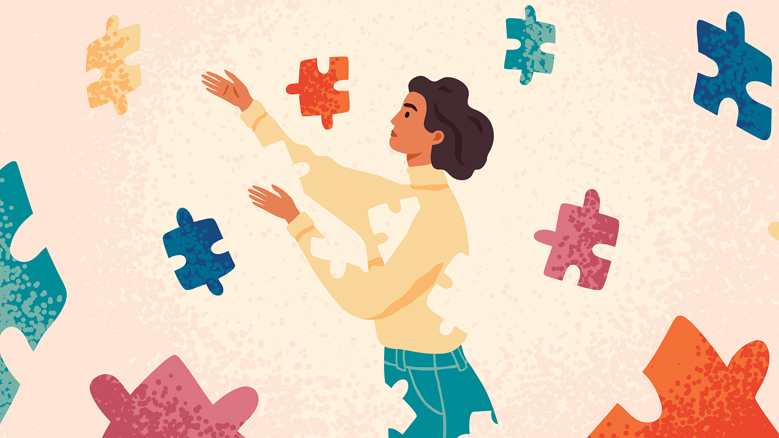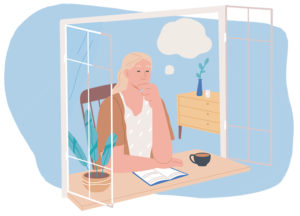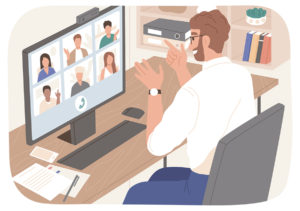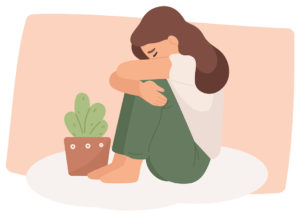Elderhood: Redefining Aging, Transforming Medicine, Reimagining Life
- Kindle edition by Aronson, Louise.
Elderhood: Redefining Aging, Transforming Medicine, Reimagining Life Kindle Edition
by Louise Aronson (Author) Format: Kindle Edition
4.5 out of 5 stars 211 ratings
#1 Best Seller in Geriatrics
See all 4 formats and editions
Read more
Length: 451 pages
Editorial Reviews
Review
"Exquisitely written . . . [Aronson] advocates a new paradigm: a re-balancing act in which technology has a role but the focus returns to care. Unlike the high-tech, algorithmic march of modern medicine, her idea of truly ‘personalized medicine’ incorporates the patient’s past experiences and current expectations. This integrative, humanistic model of geriatrics is rare. One can only hope its practices are adopted swiftly." - Nature
“Wise and engaging.” ―AARP Magazine
"Bracing, always compassionate." - Wall Street Journal, Best Books About Retirement and Aging of 2019
“A passionate, deeply informed critique of how our healthcare system fails in its treatment of the elderly . . . Vitally important . . . Though the subject of this provocative book is the elderly, its message touches the entire span of human life.” ―BookPage
“Eloquent and impressive . . . A landmark work . . . In a world of increasing numbers of older adults, Aronson's highly readable, absorbing, and thought-provoking book should serve as a guide for how our culture must change in order to provide a future in which all of us can age well throughout the span of our lives.” ―Changing Aging
“[A] penetrating meditation on geriatrics . . . Aronson's deep empathy, hard-won knowledge, and vivid reportage makes for one of the best accounts around of the medical mistreatment of the old.” ―Publishers Weekly, starred review
“An examination of aging and the human condition encompassing poignant stories and the viewpoints of medical experts, writers, historians, and scientists . . . Empathetic, probing, and often emotionally moving narratives on appreciating the power and the pain of aging.” ―Kirkus, starred review
"A bold critique of our anti-aging society and of the medical care seniors receive. . . This book, part memoir, part critique and part prescription, encourages readers to help put an end to the anti-aging industry and its profiteers, to engage in better self-care and to collectively ask the medical community to look at elderhood not as a disease." - The Missourian
"[A] vast and penetrating analysis…With strong empathy that comes from both a professional understanding of and personal experience with the challenges of aging, Aronson provides an essential guide to how society in general and the health-care industry in particular must recalibrate their approach to providing concerned and competent elder care. Thought provoking and wise, Aronson’s memoir-cum-treatise should be required reading for medical professionals and will be of great use for seniors and those who support them." - Booklist, starred review
“Monumental . . . Elderhood, like the life station it studies, is dynamic, multifaceted and full of wonder. Aronson’s writing, too, flexes with vibrant energy as she discusses in lucid, candid detail the ways she has seen the healthcare system neglect the overall well-being of her patients, her colleagues and herself . . . Intimidating as it may seem, elderhood becomes welcoming and generous in Aronson's deft care." - Shelf Awareness, starred review
“An in-depth, unusually frank exploration of biases that distort society's view of old age and that shape dysfunctional health policies and medical practices.” ―Kaiser Health News
“Aronson's Elderhood is dazzling, rich with knowledge gleaned from her professional work as a geriatrician, her personal experience as a daughter, her common sense, and her thorough analysis of our social supports and cultural messaging. Her arguments are powerful, and her conclusions are revolutionary. I hope everyone who has a stake in older people, which is ultimately all of us, will read this book.” ―Mary Pipher, author of WOMEN ROWING NORTH
“In the latter years there are possibilities for joy, transcendence, and meaning, but also for just the opposite. Aronson writes like a memoirist while giving us scientific insight, philosophical wisdom, and wise counsel for a journey and destination we all share. Elderhood is a lovely and thoughtful exploration of this voyage.” ―Abraham Verghese, author of CUTTING FOR STONE
“In Elderhood, the physician-writer Louise Aronson provides an honest and humane analysis of what it means to grow old in America. Her book--part memoir, history, and social critique--is deeply sympathetic to elders and sharply critical of the "anti-aging industry" that has tried to turn being elderly into some sort of disease. I highly recommend this wonderful book to anyone who plans on growing old in this country.” ―Sandeep Jauhar, author of HEART: A HISTORY
“As Louise Aronson says, 'Life offers just two possibilities: die young or grow old.' This searing, luminous book is for everyone who hopes to accomplish the latter and remain fully human as they do. It will challenge your assumptions and open your mind--and it just might change your life.” ―Lucy Kalanithi, MD, editor of WHEN BREATH BECOMES AIR
“In Elderhood, Louise Aronson draws on the experiences of her own life and the many lives she has touched as a geriatrician to think about age and aging, combining the insights of science and medicine with the wisdom of literature and human history, all narrated with the practical realism of the caring clinician. It's a wise and beautiful book, to be cherished by anyone who hopes to keep on growing, aging, and learning.” ―Perri Klass, MD
“The book that every one of us has been or will be looking for--a passionate, illuminating, brilliant, and beautifully written meditation on aging and caring for elders, Elderhood is a godsend.” ―Pauline Chen, MD, author of FINAL EXAM
“An intimate look into how the aging process affects real lives and a non-didactic take on the importance of health care.” ―San Francisco Chronicle on A HISTORY OF THE PRESENT ILLNESS
“Dr. Aronson writes lovely, nuanced description.” ―The New York Times on A HISTORY OF THE PRESENT ILLNESS
“The ethical dilemmas that abound in medicine are prominent but never swamp the stories: these are tales about people, as insightfulas Lorrie Moore or Alice Munro.” ―The Independent on A HISTORY OF THE PRESENT ILLNESS
“A fascinating study of our fragile human condition, both physical and emotional. Here is a writer-and a doctor-whose empathy . . . springs forth on every page.” ―Peter Orner on A HISTORY OF THE PRESENT ILLNESS
“If you've ever wondered what goes on behind the closed doors of the sick and the wounded--not on television or in movies but really--then this is the book for you. Compassionate and even anguished . . . It it has the palette and the ring of truth.” ―Victoria Sweet, author of GOD'S HOTEL, on A HISTORY OF THE PRESENT ILLNESS
“Invites us to bear witness as people--with very little fanfare, but with a profound sense of truth--to come to terms with what it really means to be a flawed, sick human being in a flawed, sick world.” ―Chris Adrian, M.D., author of THE CHILDREN'S HOSPITAL on A HISTORY OF THE PRESENT ILLNESS
“A History of the Present Illness is a collection of stories about doctors and their patients, and about the chronic and presenting situations that bring them to crisis. Eudora Welty described the work of another physician/story writer by saying that 'Chekhov's candor was exploratory and painstaking -- he might have used it as the doctor in him would know how, treating the need for truth between human beings as an emergency,' words that seem to me to also apply here. Aronson's quest, too, is for that truth.” ―Antonya Nelson, author of BOUND, on A HISTORY OF THE PRESENT ILLNESS
“Aronson's examination of medical culture in stories, of the brutality and tenderness at home and hospital, is a gem. [Her] voice is tender and one from which I hope we'll hear more histories in the future.” ―Washington Independent Review of Books on A HISTORY OF THE PRESENT ILLNESS
“Aronson effectively illustrates just how jumbled life can be. Hope is limping barely one step ahead of sadness. Human devotion and division, responsibility to self and others are only a smidgen of the subject matter examined by talented and knowledgeable Aronson.” ―Booklist on A HISTORY OF THE PRESENT ILLNESS
About the Author
Louise Aronson, MD, is the author of A History of the Present Illness and is a geriatrician, educator, and professor of medicine at the University of California, San Francisco (UCSF), where she directs UCSF Health Humanities. A graduate of Harvard Medical School and the MFA Program for Writers at Warren Wilson College, Dr. Aronson has received the Gold Professorship in Humanism, the California Homecare Physician of the Year Award, and the American Geriatrics Society Clinician-Teacher of the Year Award, as well as numerous awards for her teaching, educational research, and writing. The recipient of a MacDowell fellowship and four Pushcart nominations, her articles and stories have appeared in many publications, including the New York Times, New England Journal of Medicine, Lancet, and Bellevue Literary Review. She lives in San Francisco.
Product details
File Size: 5489 KB
Print Length: 451 pages
Publisher: Bloomsbury Publishing; 1 edition (June 11, 2019)
Publication Date: June 11, 2019
› Visit Amazon's Louise Aronson Page
Louise Aronson
Follow
Biography
Louise Aronson is a doctor, writer, educator, and professor of medicine at the University of California, San Francisco (UCSF). A graduate of Harvard Medical School and the Warren Wilson Program for Writers, she is the author of a short story collection, A History of the Present Illness (Bloomsbury, 2013) and the forthcoming non-fiction Elderhood: Redefining Aging, Transforming Medicine, and Reimagining Life (Bloomsbury, June 11, 2019). Her articles and stories have appeared in publications including The New York Times, Narrative Magazine, and Bellevue Literary Review and have earned her a MacDowell fellowship, the Sonora Review Prize, and four Pushcart nominations. For her medical work, she has received the Gold Professorship in Humanism in Medicine, the California Homecare Physician of the Year award, and the American Geriatrics Society Clinician-Teacher of the Year award. Learn more at www.louisearonson.com.
Customer reviews
4.5 out of 5 stars
----------------
Top Reviews
Top Reviews
-----------
Jill I. Shtulman
TOP 1000 REVIEWERVINE VOICE
5.0 out of 5 stars An essential, eye-opening book for every person who will ever age
Reviewed in the United States on April 19, 2019
Vine Customer Review of Free Product( What's this? )
Anyone who is already old, caring for someone old, or intending to grow old in the near or distant future needs to read this book. Now! And that not only includes readers; it also includes policy-makers.
Elderhood is not a “how-to” book that treads over the same old tired ground. Rather, it’s a book that tackles why aging must be understood and redefined and why the medical establishment’s usual goals of saving lives and curing disease is misplaced and ill-advised in many older patients.
I’m going to pause a moment in this review to say that I was the point person for my own once vibrant elderly mother, who died at age 93 after a 10-year downward spiral. I saw first-hand how healthcare, well-meaning though it was, often acted counterintuitively. Dr. Aronson makes many excellent points including these:
*All top-ranked health systems on the planet rely on primary care to keep people healthy. In the U.S., ranked 37th among nations by the World Health Organization, we have trouble recruiting physicians to primary care since those doctors are paid on average over $100,000 less than specialists. As a result, we focus on high-tech solutions rather than commonsense ones.
*Pharmaceutical trials focus mostly on middle-aged, not elderly, targets. As a result, the side effects in the elderly are often minimized or glossed over entirely. Moreover, many older patients (my mom was one of them) are prescribed multiple drugs that interact with each other and cause more harm than good.
*It is easier for the elderly to get a cochlear implant than a hearing aid or laser treatments instead of eyeglasses. Yet a simple “fix” can do wonders by providing the elderly with a healthier, fully-engaged life.
*Being “old” should not be classified as 65+. In reality, people in the Third Age of life (the young-old) have vast differences in health, activities and consumer roles. They are very distinct from the “old-old” who are truly infirm and dependent.
*Successful aging is possible for those who do not perceive meaning in aging itself, but instead, perceive meaning in being themselves in old age. Adaptability and self-acceptance are key.
I could go on and on – just about every page has insights on how we, as a society, can reimagine life and why it’s crucial to do so, since someone who is 65 years old and relatively healthy will very likely live to 90. This well-written, easily accessible book should be mandatory for anyone entering medical school or politics, and certainly for every person who is affected by aging (i.e., all of us).
Read less
167 people found this helpful
Helpful
Comment Report abuse
----------------
Jane Hinrichs
TOP 1000 REVIEWERVINE VOICE
5.0 out of 5 stars Important, amazing and should be nominated for a Pultizer Prize!
Reviewed in the United States on March 15, 2019
Vine Customer Review of Free Product( What's this? )
This book is incredible. I just hope I can do it justice with this reivew. I will do my best to tell you why I love this book so much and feel that it should be integrated into medical school curriculum and be read by everyone who works in the medical field and by people who are caregivers and who deal with patients and caregivers (I write that because I myself am a caregiver and this book spoke so much to me). Reasons why I love this book:
1. It is a great read. Dr. Aronson is a really great writer. It is an enjoyable read. She also has an extensive vocabulary and so I even learned some new words. Always a bonus!
2. Aronson has a unique perspective being that she is a doctor and is a geriatrician and professor and author and also has experience has an adult daughter to a dying parent. All these roles contribute to this book.
3. We go on a journey with her to find her own unique calling in the medical field which is telling.
4. She sees the problems in our healthcare system. She has experienced them from both sides.
5. She gives a list of ten "assumptions" she'd like to see in a new paradigm in the healthcare field. They are truly people-centered. They are found on page 378 and I want to list them here:
"While the terms medicine and health care are often used interchangeably, they are not equivalent.
"Health matters more to both individuals and society than medicine.
"Medicine and medical science are not the same thing; the latter is one component of the former.
"Science is necessary but not sufficient to ensure health or provide health care.
"When we make data all that matters, we often count what can be counted rather than what counts.
"Technology creates new problems and questions even as it solves others; to be useful, it requires guiding principles and thoughtful consideration of risks and consequences as well as benefits.
"Separating the medical from the human leads to a separateion of the medical from the human.
"History, with its inherent conservatism and tendency to conform to the self-interest of the powerful, has been science's partner in shaping our health care system.
"As an institution, medicine should prioritize the interests of the people over its own.
"The primary goal of medicine is optimization of patient health."
6. She shares the challenges of changing the whole health care system and how it got to the point it is.
7. She makes it clear that all people, no matter their age or abilities, should be treated with dignity and given care. No part of the population is less valuable than another part.
Oh, there are so many reasons this book should be read by many. I hope you take the time to read it. It will change your view of healthcare and medicine and life itself.
Read less
132 people found this helpful
Helpful
---------------------
Scott McKinnon
4.0 out of 5 stars Important work, but slightly repetitive.
Reviewed in the United Kingdom on July 20, 2019
Verified Purchase
Broadly, I have greatly enjoyed reading "Elderhood". As a junior doctor in the UK with a vested interest in geriatrics, I heard about this book on the GeriPals podcast and the insights that Dr Aronson and her colleagues shared made me want to buy this book.
At first, I found this an incredibly engaging read - in many places, treading new ground in how we view the elderly and their care. Dr Aronson shares valuable insights into her experiences as a training doctor, as a geriatrician, and most importantly, as a caregiver. She engaged me throughout with many interesting stories of the many elderly patients she has taken care of over the course of her career - humanising them, sharing with the world the value that specialist geriatric care can provide, and showing through example why it is important to reshape the way we think about ageing and the elderly.
However, in spite of this initial engagement, I found the layout of the book slightly haphazard - jumping from topic-to-topic, from patient, to philosophy, to biography, to sociology. Dr Aronson shares with us her perspective on a great variety of topics - gender inequality, physician reimbursement, "privilege" and the influence this has on the care patients receive. Personally, I bought this book due to what is described in the title and description - the trail-treading take that Dr Aronson gives us on patient care. I would have enjoyed the book much more had it not included much of these diversions, and had it been slightly less repetitive about some of the concepts it presents about how we, as a society, view elderhood.
In summary, I highly recommend that you give this book a read if you are someone who wants to learn more about what it means to be elderly in our society; if you have an interest in geriatrics; if you are a caregiver; or (as Dr Aronson points it) - if you're human, as most of us will grow old some day! Just be aware that while this is a fascinating read, you may find yourself battling through the rest of the book about halfway through.
Read less
2 people found this helpful
---
Karen Sampson
4.0 out of 5 stars Worthwhile overview of finding meaning and fulfillment throughout life
Reviewed in Canada on February 5, 2020
Verified Purchase
The doctor's approach is straightforward and thoughtful, covering both scientific and humanist arguments for what constitutes good medicine and adequate care, especially for our aging population. She strongly suggests that our society needs to rethink how we feel about aging and that geriatric medicine could do with more attention and compassion.
Helpful
Report abuse
=======
나이듦에 관하여 - 나이듦을 재정의하고 의료 서비스를 혁신하여 우리 삶을 재구상하다
루이즈 애런슨 (지은이),최가영 (옮긴이)비잉(Being)2020-02-05
844쪽152*225mm1097gISBN : 9791135459146
----
책소개
초고령 사회를 눈앞에 둔 우리 사회에 꼭 필요한 패러다임을 제시하는 책이 출간됐다. 바로 《나이듦에 관하여》이다. 현대 의학은 인간의 수명과 건강에 매우 큰 혜택을 가져왔다. 빛이 있으면 어둠에 있듯이 현대 의학은 혜택도 제공했지만 동시에 문제도 가져왔다. 현대 의학으로 해결하지 못한 부분들이 나타나기 시작했다. 임상 실험에서 청장년들에게 안전하고 효과적이었던 신약들도 노인에게 사용되었을 때 부정적인 결과를 초래했다. 성별, 나이, 인종 등의 특징에 따라 표준화된 치료법이 듣지 않을 수 있다는 사실이 드러났다.
나이가 들수록 케어(care)의 중요성은 더욱 커진다. 영어사전에 따르면 care의 뜻은 누군가의 건강, 복지, 생활 유지, 보호에 필요한 것을 제공한다는 의미이다. 사회적 약자일수록 이러한 케어의 중요도는 더욱 커진다. 정맥수액, 수술 등의 치료 수단은 분명 효과적인 수단이다. 그러나 환자들의 상황과 맥락은 제각각 다르다. 젊고 건강한 사람에게 효과적인 치료법도 환자가 감당하기 어렵다면 다시 생각해 보아야 한다. 루이즈 애런슨의 책은 겉으로 보기에는 눈부시게 발전한 현대 의학과 의료 서비스 속에서 소외당하고 있는 계층을 우리에게 보여준다.
이 책은 노년기에 대한 이야기만이 아니다. 개인성과 복잡성을 간과하는 생물학적 환원주의의 산물인 현대 의학을 향한 강력한 자성의 목소리이자, 우리 사회를 향해 던지는 따뜻하고 자상한 메시지이다. 《나이듦에 관하여》는 의학계와 사회 복지에 관심이 있는 수많은 사람들에게 큰 통찰을 전달한다. 우리는 필연적으로 발생할 수밖에 없는 사회의 터닝 포인트에 서 있다. 《나이듦에 관하여》는 이러한 전환점을 어떻게 잘 맞이할 것인지 생각해볼 수 있는 책이다.
---
목차
잉태
저자의 말
탄생
1. 생명 - 노인과 어르신
유년기
2. 영아 - 증조할머니의 가슴과 광란의 질주
기억 ․ 교훈
3. 유아 - 노인의학의 걸음마
역사 ․ 환자가 되다 ․ 넘겨짚기
4. 소아 - 진퇴양난
가정교육 ․ 부활 ․ 착각 ․ 표준화 ․ 선 긋기
5. 10대 초반 - 문제를 인정하는 것이 최선의 돌파구다
정상은 정상일까 ․ 다름과 틀림
6. 10대 - 수상스키 타는 70대 회장님과 헬스클럽의 80대 미녀
진화 ․ 잘못된 결정 ․ 회춘 ․ 방치된 간극 ․ 선택
성년기
7. 청년 - 실수투성이 레지던트
트라우마 ․ 현대적 의료 ․ 세뇌 ․ 실수 ․ 능력자 ․ 수치심 ․ 색안경
8. 장년 - 현대 의학의 자가당착
자각 ․ 말, 말, 말 ․ 소명 ․ 거리 ․ 직업의 가치 ․ 진실 ․ 생물학 ․ 목소리를 내는 것과 진상을 부리는 것 ․ 효율을 위한 위탁일까 책임회피일까 ․ 열성분자
9. 중년 - 번아웃 증후군
단계들 ․ 응답할 수 없는 구조 요청 ․ 명성 ․ 복잡한 노인들 ․ 방전되다 ․ 섹시 ․ 환멸감 ․ 우선순위 ․ 공감
10. 젊은 노인 - 이제는 달라질 때
나이 ․ 변화와 병 사이 ․ 커뮤니케이션의 기술 ․ 자유 ․ 나는 왜 이럴까 ․ 수명 ․ 어린이 보호 포장 ․ 제자리 찾기
노년기
11. 노인 - 유년기, 성년기, 그다음에 노년기
특별한 노인 ․ 미래를 위해? ․ 절망 속에서 희망을 발견하다 ․ 인간의 값어치 ․ 사랑받는 사람 ․ 사는 곳 ․ 마음으로 응원하다 ․ 첨단기술 ․ 의미 있는 인생 ․ 상상력 ․ 노인의 몸 분류
12. 고령 노인 - 그럼에도, 변화는 시작되었다
투명인간 ․ 남과 여 ․ 의학과 환자 돌봄 ․ 교육 ․ 정신적 탄성 ․ 태도 ․ 건축 디자인 ․ 건강 ․ 시각
13. 초고령 노인 - 잘 죽는 최선의 방법
시간 ․ 자연스러운 삶과 죽음 ․ 그냥 한 사람 ․ 선택의 결과 ․ 가장 어려운 첫 걸음, 받아들이기
죽음
14. 못다 한 이야기
마침표
15. 기회는 열려 있다
감사의 글
주석
참고문헌
-----
접기
추천글
애런슨의 《나이듦에 관하여》는 훌륭한 책이다. 저자가 직업을 통해 얻은 지식, 개인적인 경험, 합리적 고찰, 그리고 노인들을 향한 사회적 안전망과 문화적 메시지에 대한 분석이 풍부하게 담겨 있다. 애런슨의 주장은 강력하고, 결론은 혁명적이다. 모든 사람이 이 책을 읽기를 바란다. - 메리 파이퍼 (『오필리아의 소생과 젊은 치료사에게 보내는 편지』의 저자)
노인학에 대한 깊은 통찰이 담겨있다. 애런슨의 뛰어난 공감능력과 귀중한 지식, 현실에 대한 생생한 보고는 이 책을 오늘날 의학계가 노인들을 대하는 방식을 고발하는 최고의 도서 중 하나로 만들었다. - 퍼블리셔스 위클리 (미국)
나이가 든다는 것과 가슴 아픈 인간사에 대한 이야기, 의료전문가들 및 작가, 역사학자, 과학자들의 견해를 총망라한 책. 나이가 드는 것의 가치와 고통에 대해 저자는 온 마음으로 공감하고, 집요하게 캐묻고, 종종 감동적인 이야기를 들려준다. - 커커스 리뷰
광범위하고 통찰력 있는 분석이 담긴 책. 나이가 든다는 것에 대한 전문적인 이해와 개인적인 경험을 통한 공감을 바탕으로 저자는 사회와 건강 관련 산업이 어떻게 올바르게 노인을 보살필 수 있는지에 대한 지침을 제공한다. 이 사려깊고 현명한 애런슨의 회고록은 의학계에 있는 사람들 모두 읽어야 하고 노인들과 이들을 돌보는 사람들에게도 큰 도움이 될 것이다. - 북리스트 (미국도서관협회)
노인들에 대한 우리의 의료 시스템이 어떻게 실패하는지에 대한 열정적이고 깊이 있는 비판. 혁신적인 이 책의 주제는 노인들이지만 그 안에 담긴 메시지는 인간 삶 전체와 연관된다. - 북페이지
아름답게 쓰인 책이다. 애런슨은 새로운 패러다임을 제시한다. 의학 기술은 여전히 중요하지만 그녀는 돌봄에 다시 초점을 맞추는 균형잡힌 시각을 추구한다. 현대 의학의 최첨단 기술과 알고리즘에 의존하는 의술과는 반대로 그녀가 주장하는 ‘개인화된 의학’은 환자의 과거 경험과 현실적 기대까지도 반영한다. 이 통합적이고 인문주의적인 노인학 모델은 매우 귀하다. 빠른 시일 내에 도입되기를 희망한다. - 네이처
기념비적인 책이다. 《나이듦에 관하여》는 역동적이고 다면적이며 경이로움으로 가득하다. 애런슨의 이 책은 저자의 환자, 동료, 그리고 저자 자신의 전반적인 웰빙을 소외시키는 지금의 건강 관리 시스템에 대해 명쾌하고 세밀하게 설명하고 있다. - 셸프 어웨어니스
루이즈 애런슨이 말하듯 ‘인생은 젊어서 죽거나 나이가 드는 것 두 가지 가능성만이 있다.’ 이 책은 성공적으로 나이가 들면서도 완전히 인간적으로 남기를 바라는 모든 사람들을 위한 책이다. 이 책은 당신이 가지고 있는 생각들에 도전할 것이고 당신의 마음을 열어줄 것이다. 그리고 당신의 삶을 바꿀 수도 있다. - 루시 칼라니티 (의사, 《숨결이 바람 될 때》 저자 폴 칼라니티의 아내)
노년기에는 즐거움, 초월성, 의미에 대한 가능성들이 있지만, 그 반대의 가능성도 있다. 애런슨은 우리에게 과학적인 통찰력과 철학적 지혜를 제공하고, 우리 모두가 경험할 인생 여정과 목적지에 대해 현명한 조언을 하고 있다. 《나이듦에 관하여》는 인생에 대한 사랑스럽고 사려 깊은 탐구다. - 아브라함 베퀴즈 (뉴욕 타임스 베스트셀러 저자이자 스탠퍼드 대학교 의대 교수)
저자 및 역자소개
루이즈 애런슨 (Louise Aronson) (지은이)
저자파일
최고의 작품 투표
신간알림 신청
노인의학전문의이자 미국 캘리포니아 대학교 샌프란시스코 캠퍼스(UCSF, University of California, San Francisco) 의과대학의 교수이다. 대표 저서로는 차 우타 쿠아 상과 PEN 아메리카 신인 문학상 최종후보에 오른 ≪의료차트 그리고 그 안에 담긴 환자들의 이야기(A History of the Present Illness)≫가 있다. 하버드 의과대학을 졸업하고 워런 윌슨 칼리지(Warren Wilson College)에서 문예창작으로 예술학 석사학위(MFA)를 받았다. 아놀드 P. 골드 재단이 수여하는 인본주의 교수상, 올해의 캘리포니아 홈케어의사 상, 미국 노인의학학회가 수여하는 올해의 현역 임상교육자 상을 비롯해 다수의 수상을 통해 의학 및 문학 등 다방면에서 공로를 인정받고 있다. ≪나이듦에 관하여≫는 2019년 출간되자마자 언론의 주목을 받으며 뉴욕타임스 베스트셀러에 올랐다. 루이즈 애런슨은 맥도웰(MacDowell) 콜로니 펠로십을 수상하고 푸시카트 문학상 최종후보에 네 차례 지목되었다. 현재 <뉴욕 타임스(New York Times)>, <뉴잉글랜드 저널 오브 메디슨(New England Journal of Medicine)>, <랜싯(Lancet)>, <벨뷰 리터러리 리뷰(Bellevue Literary Review)> 등 다양한 매체에 논문과 기사가 꾸준히 발표되고 있다. 애런슨의 관심 연구 분야는 노인의학 교육 및 자기 성찰을 통한 건강증진이며 이밖에도 건강 분야에서 사회정의를 구현하는 활동을 활발히 펼치고 있다. 대중을 상대로 한 의학 글쓰기에도 관심이 많다. 현재 UCSF에서 학생들을 가르치며 보건 인문학 및 사회정의 프로그램의 책임자로 활동하고 있다으며 Osher 통합의학 센터에서 성공적인 노화 방법에 대한 연구를 이끌고 있다. 일터에서 질병과 죽음에 관해 다양한 사람들과 이야기를 나누며 그들이 성공적으로 늙어갈 수 있도록 도와주는 데 큰 보람을 느낀다. 현재 가족들과 함께 자신이 태어난 샌프란시스코에 거주 중이다. 접기
최근작 : <나이듦에 관하여> … 총 7종 (모두보기)
최가영 (옮긴이)
저자파일
최고의 작품 투표
신간알림 신청
서울대학교 약학대학원을 졸업 하였다. 현재 번역 에이전시 엔터스코리아에서 과학 및 의학 분야 출판 전문 번역가로 활동하고 있다.
주요 역서로는『뉴 코스모스 : 우주를 향한 새로운 질문』,『한 권의 물리학 : 빅뱅에서 양자 부활까지, 물리학을 만든 250가지 아이디어』,『한 권의 화학 : 화약에서 그래핀까지 화학 발전의 250가지 이야기] 』,『IQ 148을 위한 멘사 탐구력 퍼즐』,『더 완벽하지 않아도 괜찮아: 끊임없는 강박사고와 행동에서 벗어나기』,『과학자들의 대결: 하얀 실험 가운 뒤에 숨어 있는 천재들의 뒷이야기』,『다빈치 추리파일 : 비밀노트에 숨겨진 미스터리 코드』,『The Functional Art : 인포그래픽과 데이터 시각화 기법을 활용한 스토리텔링』,『차 차 Tea (차 차 차)』,『커피 중독(Coffee Obsession)』,『꿀꺽 한 입의 과학 : 달콤 살벌한 소화 기관 모험기』,『맨즈헬스 홈닥터 : 운동 능력과 피트니스를 위한 근육 트레이닝』,『슈퍼박테리아 : 수퍼박테리아, 과학으로 해결할 수 있을까?』,『배신의 식탁 : 우리는 식탁 앞에서 하루 세번 배신당한다』,『핸드백뷰티 : 3분이면 충분해 핸드백 속 긴급 뷰티 처방전』,『복부 비만 없애는 식습관의 비밀』,『건강을 위한 최고의 밥상』,『당신의 다이어트를 성공으로 이끄는 작은 책』,『버자이너 : '신성한 구멍'에 대한 완벽한 해설서』가 있다. 접기
최근작 : … 총 38종 (모두보기)
----
출판사 제공 책소개
뉴욕 타임스, 아마존 베스트셀러!
2020 앤드루 카네기 메달 논픽션 후보!
월스트리트 저널 선정 2019년 은퇴 및 노년에 대한 최고의 책 중 하나!
고령사회를 맞이할 우리 사회에 새로운 패러다임을 선물하는 책!
한국은 고령사회를 맞이하고 있다. 유엔(UN)은 65세 이상 인구가 전체 인구에서 차지하는 비율이 7% 이상이면 고령화 사회, 14% 이상이면 고령사회, 20%면 초고령 사회로 분류하고 있다. 통계청에서 제공하는 자료에 따르면 한국의 고령인구비율은 2019년 14.9%였다. 1999년에는 6.9%로 사실상 고령화 사회에 진입했고 2018년에는 14.3%로 고령사회에 도달했다. 현실은 이렇게 변화하고 있는데 우리는 노년의 삶에 대해 얼마나 알고 있을까?
노인의학의 권위자이자 미국에서 가장 영향력 있는 문학 작품에 수여하는 푸시카트 문학상 최종 후보에 네 번이나 이름을 올린 루이즈 애런슨 교수는 이 책에 자신의 경험과 미국 노인의학의 발전사를 토대로 현대를 살아가는 노년의 삶을 담았다. 오늘날, 급속도로 늘어난 노인인구만큼 노인환자도 빠르게 늘어나고 있다. 눈부시게 발전한 의학 덕분에 인류 수명이 늘어났지만, 그 이면에는 어둠도 깔려있다. 이러한 사회적 배경 속에서 저자는 노인으로 산다는 것, 바람직하고 행복한 노년의 삶을 사는 것이 무엇인지 말하고 있다.
루이즈 애런슨 교수는 오늘날 노인에 대한 사회적 인식을 “사지가 멀쩡한 왕년의 유명인사도 늙으면 결국 평범한 동네 할아버지가 되기 십상”이라 표현한다. 더 어려운 처지에 있는 이들은 ‘투명인간’으로 소외된다고 말한다. 많은 노인들은 삶에 대한 두려움으로 가득하다. 저자는 노인에 대한 부정적인 사회적 인식과 그들이 받는 차별적 대우를 자신이 직접 진료한 환자들의 사례와 노인의학의 발전사를 통해 알려준다.
현재의 의료 시스템은 건강, 복지, 질병 예방에 필요한 것을 제공하기보다 단순히 진단과 치료에만 집중한다. 그러다 보니 맞춤 서비스는커녕 천편일률적인 처방이 이루어진다. 임상 실험에서 매우 효능이 좋은 신약이 나오더라도 이 약은 노인들에게 오히려 해가 될 수 있다. 설상가상으로 많은 임상 실험 결과에서 노인들은 배제되어 있다. 저자는 현대 의학 속에서 개인화된 맞춤 의학이 필요하다고 주장한다.
우리는 나이 들어 갈 것이다. 그리고 자비의 결정체인 듯 보이다가도 노인이 되자 돌연 우리에게 등돌리고 마는 양면적인 현대 의학과 함께 살아갈 수밖에 없다. 행복한 노년의 삶을 누리기 위해 어떻게 할 것인가? 저자는 이 책을 통해 국가와 사회, 의학계 그리고 나이 들어갈 우리 모두에게 새로운 패러다임을 제시하고 있다.
뉴욕 타임스, 아마존 베스트셀러
앤드루 카네기 메달 논픽션 후보
월스트리트 저널 선정 2019년 은퇴 및 나이 듦에 관한 최고의 책!
“인생은 젊어서 죽거나 나이가 드는 것 두 가지 가능성만 제공한다”
고령사회, 개인화된 의학 그리고
급속도로 변하는 사회에 새로운 패러다임을 제시하는 최고의 책!
노인의학의 대가이자 실력 있는 작가인 루이즈 애런슨 교수는 인생은 젊어서 죽거나 나이가 드는 것 두 가지 선택지만을 제공한다고 말한다. 눈부시게 발전한 현대 의학은 첫 번째 선택지에서 두 번째 선택지로 우리를 이끌었다. 인간의 평균 수명은 지난 2세기 동안 두 배 이상 상승했고 여전히 상승하고 있다. 영아사망률이 낮아지고 평균 수명이 높아졌으며 출산율이 감소하기 시작했다. 이에 따라 노인 인구가 차지하는 비중도 높아졌다. 유엔(UN)은 65세 이상 인구가 전체 인구에서 차지하는 비율이 7% 이상이면 고령화 사회, 14% 이상이면 고령사회, 20%면 초고령 사회로 분류한다. 한국은 이미 2018년에 노인 비율이 14.3%로 고령사회에 진입했다. 앞으로 5~10년 뒤엔 초고령 사회로 진입할 것으로 추정된다.
초고령 사회를 눈앞에 둔 우리 사회에 꼭 필요한 패러다임을 제시하는 책이 출간됐다. 바로 《나이듦에 관하여》이다. 현대 의학은 인간의 수명과 건강에 매우 큰 혜택을 가져왔다. 빛이 있으면 어둠에 있듯이 현대 의학은 혜택도 제공했지만 동시에 문제도 가져왔다. 현대 의학으로 해결하지 못한 부분들이 나타나기 시작했다. 임상 실험에서 청장년들에게 안전하고 효과적이었던 신약들도 노인에게 사용되었을 때 부정적인 결과를 초래했다. 성별, 나이, 인종 등의 특징에 따라 표준화된 치료법이 듣지 않을 수 있다는 사실이 드러났다.
덴버 헬스의 최고경영자로 재직했던 퍼트리샤 가보우는 의사들이 표준화 시스템을 기반으로 환자들에게 조언하거나 치료 방법을 선택하는 혁신적인 시스템을 구축했다. 덴버 헬스 산하 병원은 이 시스템을 통해 눈부신 성과를 거두었다. 하지만 퍼트리샤 가보우는 치매를 앓는 94세 노모가 넘어져 다치고 나서야 표준화가 만능이 아님을 깨닫는다. 표준화 시스템이 권장하는 목 깁스, 심장 모니터기, 정맥수액, CT 스캔, 정형외과 수술, 입원과 같은 치료는 노모에게 너무 가혹한 치료였기 때문이다. 퍼트리샤 가보우는 노모를 위한 치료법으로 팔 상처를 봉합하고 뼈가 조각 난 손목에 부목을 대며 골반 골절 교정을 위해 자택에서 물리치료를 받는 방안을 택했다. 그 덕에 모친은 건강을 되찾고 병원비도 아낄 수 있었다. 같은 질병에 동일한 치료법을 적용하는 것이 반드시 효과적인 방법이 아님을 인정한 것이다.
나이가 들수록 케어(care)의 중요성은 더욱 커진다. 영어사전에 따르면 care의 뜻은 누군가의 건강, 복지, 생활 유지, 보호에 필요한 것을 제공한다는 의미이다. 사회적 약자일수록 이러한 케어의 중요도는 더욱 커진다. 정맥수액, 수술 등의 치료 수단은 분명 효과적인 수단이다. 그러나 환자들의 상황과 맥락은 제각각 다르다. 젊고 건강한 사람에게 효과적인 치료법도 환자가 감당하기 어렵다면 다시 생각해 보아야 한다. 루이즈 애런슨의 책은 겉으로 보기에는 눈부시게 발전한 현대 의학과 의료 서비스 속에서 소외당하고 있는 계층을 우리에게 보여준다.
이 책은 노년기에 대한 이야기만이 아니다. 개인성과 복잡성을 간과하는 생물학적 환원주의의 산물인 현대 의학을 향한 강력한 자성의 목소리이자, 우리 사회를 향해 던지는 따뜻하고 자상한 메시지이다. 《나이듦에 관하여》는 의학계와 사회 복지에 관심이 있는 수많은 사람들에게 큰 통찰을 전달한다. 우리는 필연적으로 발생할 수밖에 없는 사회의 터닝 포인트에 서 있다. 《나이듦에 관하여》는 이러한 전환점을 어떻게 잘 맞이할 것인지 생각해볼 수 있는 최고의 사회 교양서이다. 접기
-----
리뷰쓰기
공감순
나이 듦에 관하여 새창으로 보기
고령화 시대.
이제 우리에게 익숙한 말이 되었다.
고령화 시대란 인구의 전체에서 65세 이상이 차지하는 비율이 7% 이상이면
고령화 사회라고 부른다.
14% 이상이면 고령 사회, 20% 면 초고령 사회로 분류가 된다.
작년에 통계청에서 발표한 인구 비율은 고령 인구가 14.9%였다.
이미 우리는 2018년에 고령 사회를 넘어섰다.
우리는 노년에 대해서 얼마나 알고 있을까.
우리가 늙어간다는 것을 느끼고는 있을까.
루이즈 애런 슨 교수는 노인 인구만큼 노인 환자도 빠르게 늘어가고 있다고 말한다.
발달한 의학 기술 때문에 수명은 늘어났지만,
과연 그것이 우리가 바라고 지향하는 행복한 노년의 삶과 연결되는 것인가는 의문을 제기하고 있다,
책에는 재미있는 표현도 있다.
'사지가 멀쩡한 왕년의 유명 인사도 늙으면 결국 평범한 동네 할아버지가 되기 십상, 이라고 되어 있다.
더 어려운 처지에 있는 이들은 투명 인간이 되어버린다고 말한다.
단순히 진단과 치료에만 집중하는 데서 '케어'라는 전반적인 관리로 바뀌어야 한다고 말한다.
천편일률적인 처방이 이루어져서는 안 된다고 한다.
노인마다, 사람마다, 인종마다 모두가 다른 의학적 특성을 보유하고 있는데
일률적으로 약을 처방에서는 안 된다는 것이다.
실제로 많은 임상시험에서 노인들은 배제되어 있다고 말한다.
현대 의학은 노인들에게 등을 돌리고 있다고도 말한다.
저자는 이 책에서 국가, 사회, 의학계가 노인들에게 어떠한 자세로 대하고 접근해야 하는지에 대한 새로운 패러다임을 제시하고 있다.
나이가 들수록 케어는 중요해진다 '케어'라는 뜻은 건강, 복지, 생활 유지에 필요한 것을 제공한다는 의미가 있다.
사회적으로 약자에 대한 케어는 더욱 중요하다.
수술 등의 치료는 분명히 효과적이다.
그러나 환자들의 상황과 맥락은 제각각 다르다.
젊은 사람들에게 효과적인 치료법이라 할지라도 나이 든 사람들에게는 또 다른 문제가 제기될 수 있다.
눈부신 발전을 하는 현대 의학에서 소외당하고 있는 계층이 어디일까.
이 책은 꼭 노년기에 관한 이야기만을 담고 있는 것이 아닌 것이다..
현대 의학의 강력한 자성을 요구하고 있고 우리 사회가 좀 더 따뜻해져야 한다는 메시지를 담고 있다.
우리는 매일 터닝 포인트를 지나고 있다. 어떻게 터닝 포인트를 지날 것인가를 생각해 볼 수 있는 고령 사회의 한 단면을 볼 수 있는 책이다.
- 접기
하늘정원 2020-02-11 공감(3) 댓글(0)
Thanks to
공감
 | 여류의 노래 5
| 여류의 노래 5 



























 미리보기
미리보기
 신령한 짐승을 위하여 - 이병청 생태시 모음
신령한 짐승을 위하여 - 이병청 생태시 모음




























 신령한 짐승을 위하여 - 이병청 생태시 모음
신령한 짐승을 위하여 - 이병청 생태시 모음







